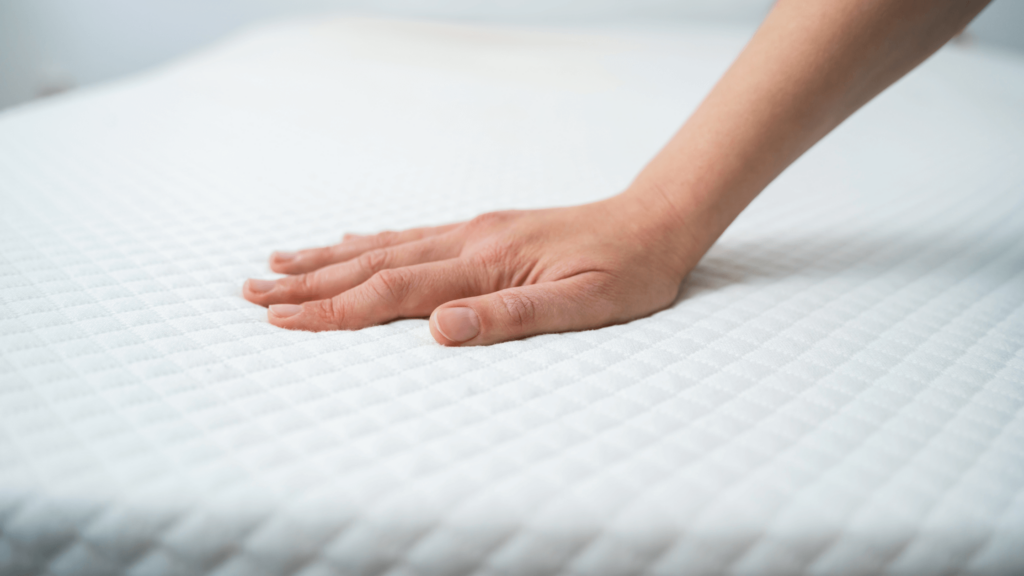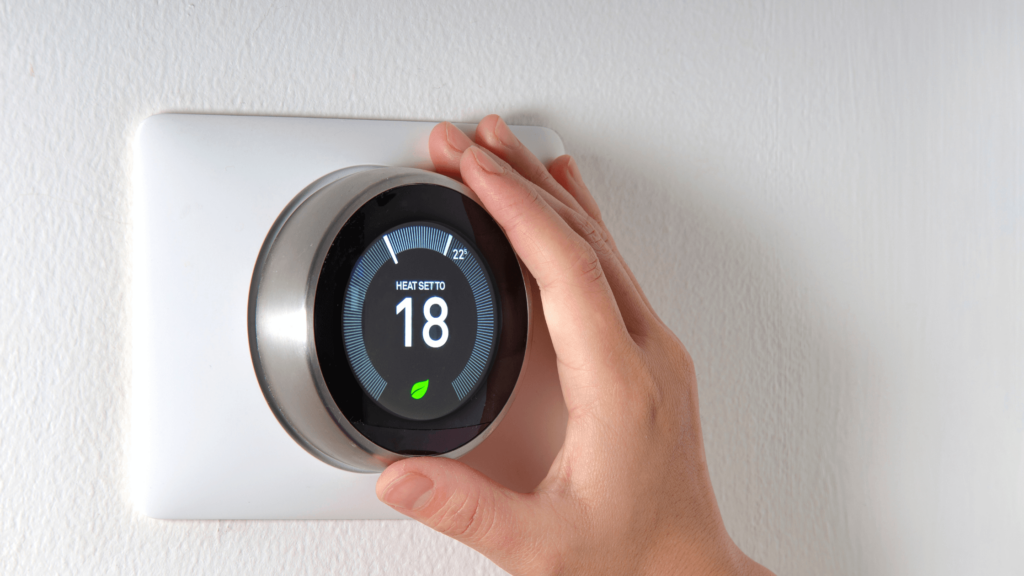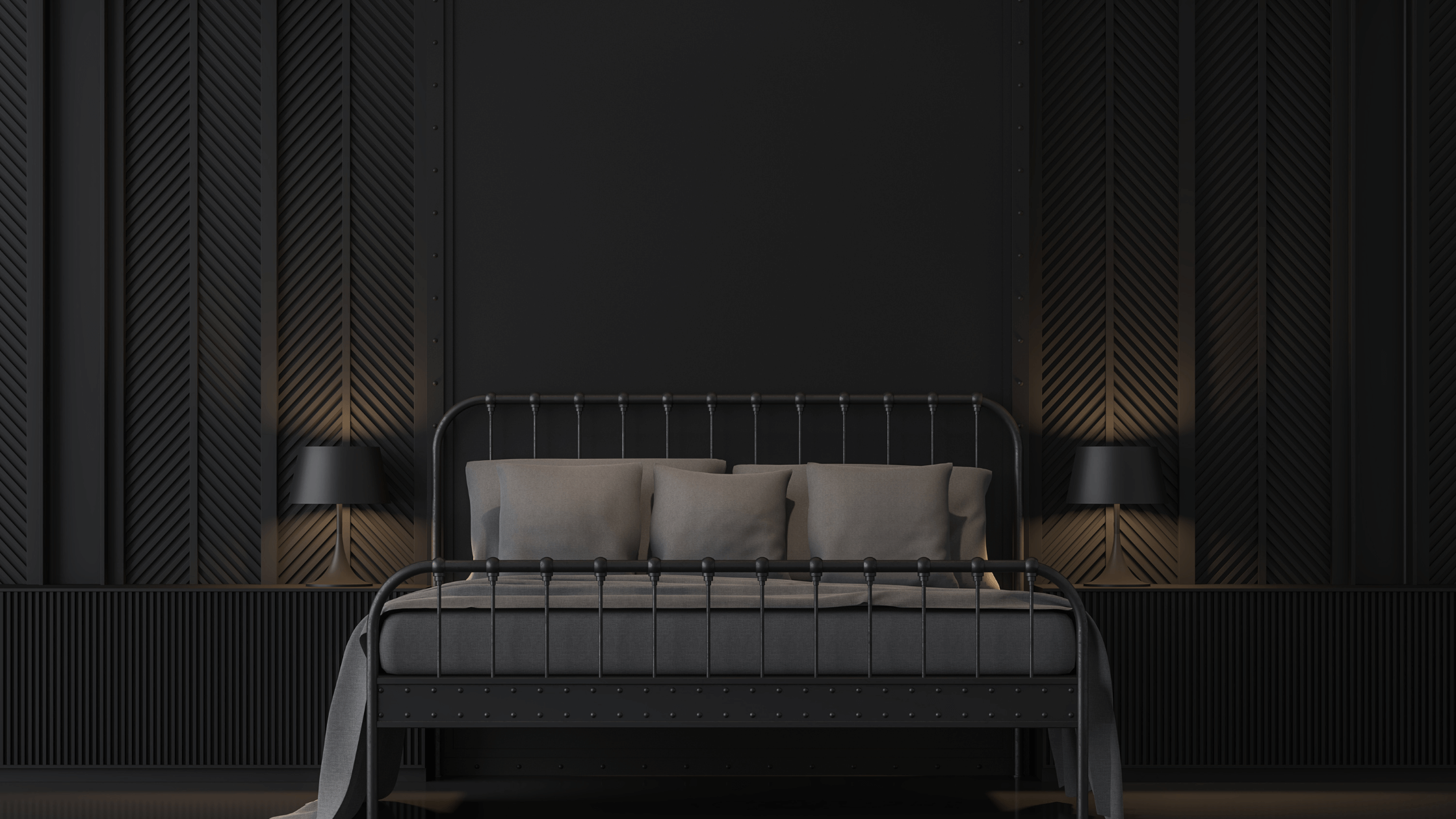Sleep is one of the most critical factors affecting your mental and physical health. Unfortunately, it’s also the first thing we sacrifice when stressed on the job site, busy, or short on time. Research has tied chronic sleep loss to a higher risk of hypertension, depression, heart attack, diabetes, and obesity. Sufficient sleep also contributes to faster reflexes, clearer thinking, and increased focus—qualities that might save your life when working in construction. Luckily, if you’ve been struggling with sleep, choosing the right mattress and pillow, using red lights, and meditating are simple hacks to improve sleep quality.
6 bedtime hacks for better sleep
1. Be picky about your pillow and mattress

You spend a third of your life in bed, so sleeping on a good mattress and choosing the appropriate pillow is essential. How do you know if you’ve got the right ones? If you regularly toss and turn all night or wake up sore, it might be time to look for a new mattress; a stiff neck in the morning might indicate the need for a more supportive pillow.
Mattresses are primarily a matter of preference—some like mattresses made from memory foam that molds to your shape, while others want organic wool and extra firmness. Visiting a store and testing out a few different mattress types and firmness levels will help you find one that feels good for you. Several online mattress retailers, like Endy, Douglas, and Casper, have also emerged in the past few years to rave reviews.
Pillows, on the other hand, are usually tailored to specific sleep styles. Do you lie flat on your back, stretched out on your stomach, or curled up on your side? Identifying how you sleep will help you pick a pillow that will keep your head cradled comfortably.
2. Swap your caffeine for tea

Experts generally recommend avoiding caffeine for eight hours before you sleep—so if bedtime is 11 pm, you should skip the coffee, tea, and soda after 3 pm. Some herbal teas don’t prevent a good night’s sleep; they can help ease you into it instead.
Chamomile tea has been shown to improve sleep quality, while skullcap has been used in many traditions as a mild sedative to induce sleep. Some studies have also shown valerian root to be an effective treatment for insomnia, although results vary.
Remember that herbal teas can interact with existing medications and may not be safe for pregnant or breastfeeding people. Always consult your doctor first.
3. Put on the red light
Blue-light-blocking glasses or blue-light filters for laptops and smartphones help block blue light rays from entering your eyes. They’re beneficial for sleep because blue light can disrupt your circadian rhythm by tricking your brain into thinking it’s still daylight, but you can also go one step further and use red light.
Some believe red light triggers your brain to produce melatonin and can also improve sleep quality—small studies have supported this theory. But taking advantage of this sleep solution requires a little more than replacing your white light bulbs with red ones—you need red light wavelengths, not just red bulbs.
4. Harness the power of magnesium
Magnesium is one of the most abundant minerals in the body, contributing to heart health, muscle function, mood, and sleep. Many adults are magnesium deficient, and growing research suggests that taking a magnesium supplement may help improve sleep quality and duration.
If you often find yourself unable to sleep due to restless legs, magnesium can help with that, too. Research shows that when taken with vitamin B6, magnesium can reduce the severity of restless leg syndrome and improve sleep quality.
There are several different types of magnesium, but magnesium (bis)glycinate and magnesium citrate will most effectively get you a good night’s sleep.
5. Drop your room temperature

Wondering how you’re going to pay for all those herbal teas, red lights, and magnesium supplements? How about a lower heating bill?
Your bedroom temperature significantly affects how well you sleep—a room that’s too hot can interfere with REM sleep and leave you bleary-eyed the next day. Experts say the ideal sleep temperature is 60 to 67°F (15 to 19°C), so turn that thermostat down for the night or crank open the windows.
With a cool bedroom, it might be tempting to zip into a cozy fleece onesie, but to avoid getting too hot, opt for light, loose-fitting pajamas instead.
6. Meditate
Even if you don’t see yourself as the meditating “type,” you may want to try taking a few minutes before to allow your mind to unwind and your body to relax. Studies have shown that regular meditation practice can help improve sleep quality and duration—and after completing a mindfulness-based stress reduction (MBSR) course, meditation proved as effective as a sleeping pill.
Try a guided meditation designed for sleep (readily available on YouTube or popular apps like Calm and HeadSpace) and allow your mind to gently slip into slumber.



2 comments